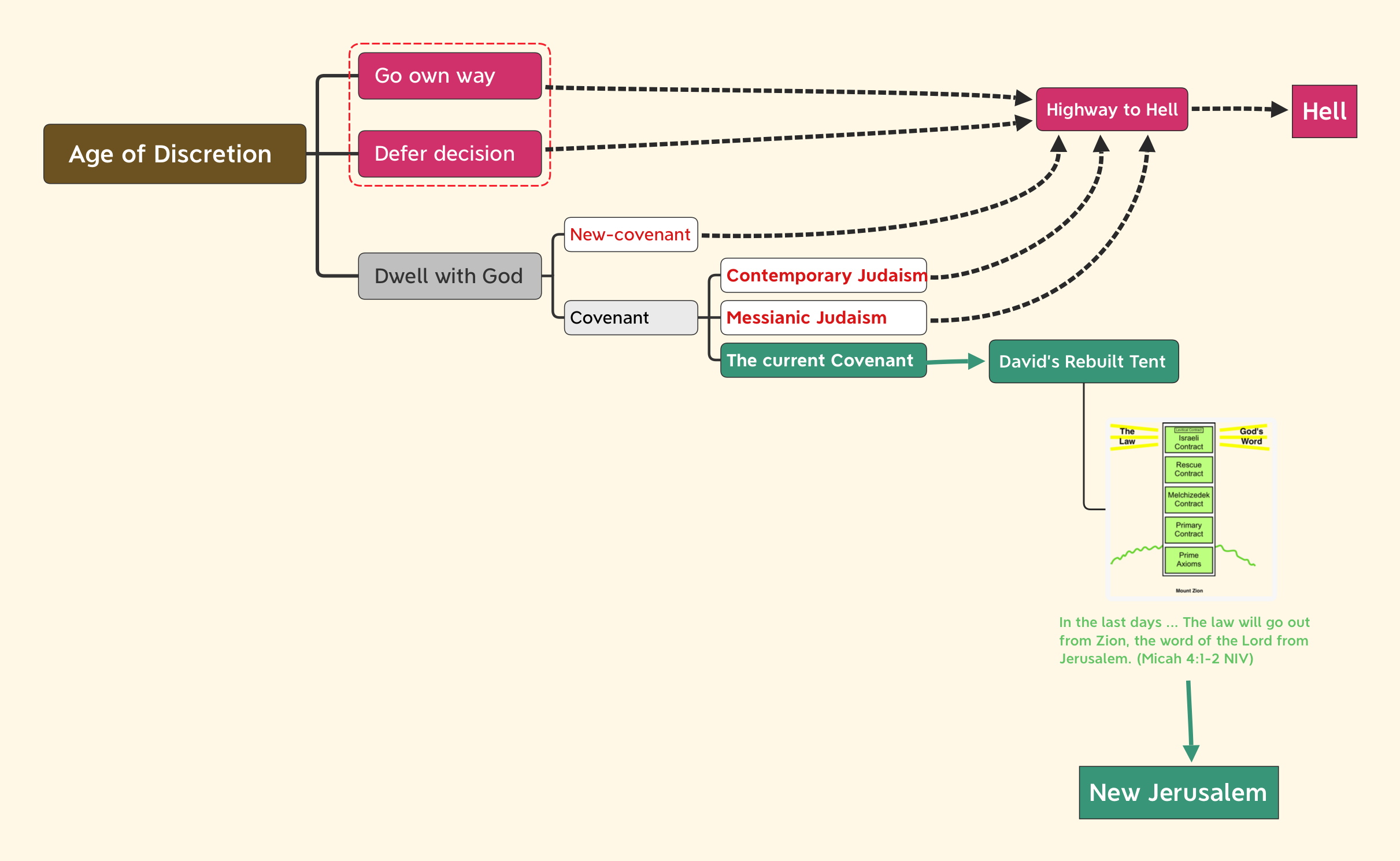 |
Index
|
Index

Quo vadis?
Let your eyes look directly forward,
and your gaze be straight before you.
Ponder the path of your feet;
then all your ways will be sure
Proverbs 4:25-26 ESV
The Lord Spirit has authority. He has power. And He is really knowledgeable because He listens to what is going on; and He takes instruction from both Father and Son. With that background, He is able to carry out the wishes of the Father and the Son.
Testifies about Jesus:
“When the Advocate comes, whom I will send to you from the Father — the Spirit of truth who goes out from the Father — he will testify about me." (John 15:26 NIV)
Not only is the Spirit taught by Father and Son (Trinity), but He listens to what is being said [and what is happening]:
12 "I have much more to say to you, more than you can now bear. 13 But when he, the Spirit of truth, comes, he will guide you into all truth. He will not speak on his own; he will speak only what he hears, and he will tell you what is yet to come. 14 He will bring glory to me by taking from what is mine and making it known to you. 15 All that belongs to the Father is mine. That is why I said the Spirit will take from what is mine and make it known to you.” (John 16:12-15 NIV)
26 "But the Counselor, the Holy Spirit, whom the Father will send in my name, will teach you all things and will remind you of everything I have said to you" (John 14:26 NIV).
13 "But when he, the Spirit of truth, comes, he will guide you into all truth. He will not speak on his own; he will speak only what he hears, and he will tell you what is yet to come" (John 16:13 NIV).
Thus enabled, they will be able to go forth and bear much fruit:
You did not choose me, but I chose you and appointed you that you should go and bear fruit and that your fruit should abide; so that whatever you ask the Father in my name, he may give it to you. (John 15:16 RSV)
Speaks through people when they are in a difficult situation:
But when they arrest you, do not worry about what to say or how to say it. At that time you will be given what to say, [20] for it will not be you speaking, but the Spirit of your Father speaking through you. (Matthew 10:19-20 NIV)
In addition, there is now direct access to the Father:
“Though I have been speaking figuratively, a time is coming when I will no longer use this kind of language but will tell you plainly about my Father. [26] In that day you will ask in my name. I am not saying that I will ask the Father on your behalf. [27] No, the Father himself loves you because you have loved me and have believed that I came from God." (John 16:25-27 NIV)
SatNavs are such an integral part of life today that it would be difficult to envisage life without them! With the SatNav up and running, it is easy to coast along on one's journey. Arrive at a crossroads and all that is necessary is to consult the SatNav and see if its recommendation matches one's own.
But isn't this the same manner of operation as Paul's 'guidance'?
Paul stresses the need to 'live in the Spirit', to be controlled by the Spirit. In other words, Paul uses the Spirit as a spiritual SatNav. No longer accountable under Covenant Law, Paul merely has to follow the instructions from the Spirit:
[6] But now, by dying to what once bound us, we have been released from the law so that we serve in the new way of the Spirit, and not in the old way of the written code. (Romans 7:6 NIV)
[9] You, however, are controlled not by the sinful nature but by the Spirit, if the Spirit of God lives in you. And if anyone does not have the Spirit of Christ, he does not belong to Christ. (Romans 8:9 NIV)
[25] Since we live by the Spirit, let us keep in step with the Spirit. (Galatians 5:25 NIV)
[1] I speak the truth in Christ---I am not lying, my conscience confirms it in the Holy Spirit--- (Romans 9:1 NIV)
[13] This is what we speak, not in words taught us by human wisdom but in words taught by the Spirit, expressing spiritual truths in spiritual words. (1 Corinthians 2:13 NIV)
More evidence may be found in the ignorance and inconsistency which accompanies Paul's doctrine. When he comes across a problem, he fumbles and drops the ball out of sheer ignorance and spiritual blindness. The proceedings of the Jerusalem Council are a case in point (Acts chapter 15).
[Analysis: The proceedings of the Jerusalem Council (Acts chapter 15).]
But perhaps the most damning evidence comes from the way Paul uses 'control by the Spirit' to externalise sin, to attribute guilt elsewhere (see: Transference of guilt).

Presuming to possess the authority of the Spirit is extremely dangerous. Leading others astray with one's error will surely result in inclusion in the Blacklist. It would be unwise to live in a fool's paradise in this world, only to find that one has been Blacklisted in the next.
The origins of Paul's 'presumption of the Spirit' can be found in his letters:
So, my brothers, you also died to the law through the body of Christ, that you might belong to another, to him who was raised from the dead, in order that we might bear fruit to God. 5 For when we were controlled by the sinful nature, the sinful passions aroused by the law were at work in our bodies, so that we bore fruit for death. 6 But now, by dying to what once bound us, we have been released from the law so that we serve in the new way of the Spirit, and not in the old way of the written code (Romans 7:4-6 NIV)
[Analysis: Romans 7:4-6.]
A quick look at the new-covenant church and its history will confirm that they do not serve in the way of the Spirit.
The origin of Paul's error is in thinking that the Spirit controls the mind of those who believe [in Jesus]:
The mind of sinful man is death, but the mind controlled by the Spirit is life and peace (Romans 8:6 NIV)
The consequence is that the Spirit is worn like some lucky charm, preventing the wearer from falling into sin and error. Or perhaps as some remote controller which overrides our own predisposition towards sin and error. This is supported by Paul's effort to externalise sin, to attribute guilt elsewhere:
Now if I do what I do not want to do, it is no longer I who do it, but it is sin living in me that does it (Romans 7:20 NIV).
Nothing could be further from the truth! We cannot transfer our guilt elsewhere. Think of what Paul is saying: he is saying that 'sin' is carrying out the wrongdoing in his life, not himself - and for which he is not therefore responsible. Which is a nonsense. He explains thus:
Therefore, there is now no condemnation for those who are in Christ Jesus, 2 because through Christ Jesus the law of the Spirit of life set me free from the law of sin and death. (Romans 8:1-2 NIV)
Think, too, of the consequences of attempting to offload our guilt (as in Ro. 7:20, above). In attempting to transfer our guilt elsewhere, we are denying any wrongdoing on our part. Therefore, since forgiveness can only follow from confession and repentance, there is no forgiveness for those who attempt to transfer their guilt elsewhere.
Notice, too, how the doctrine of Ro. 7:20, above, turns a person into a split personality of Jekyll and Hyde.
Compare Paul's attempted transference of guilt, above, with the simplicity of the tax collector's faith:
"But the tax collector stood at a distance. He would not even look up to heaven, but beat his breast and said, 'God, have mercy on me, a sinner.'" (Luke 18:13 NIV)
Jesus declared that it was the tax collector who went home justified:
"I tell you that this man, rather than the other, went home justified before God."(Luke 18:14a NIV)
David says,
[3] For I know my transgressions, and my sin is ever before me. (Psalm 51:3 NRSV)
And David is correct in what he says, for his transgressions are listed in the Books of Record, awaiting the Day of Judgement. (see: The Documentation)

[Dissertation: Analyse Paul's doctrine and assay its content.]
Today, the Covenant is viewed as a fixed entity frozen in time.
The House of Desolation deny their Messiah, hold to a covenant which they thenselves have defiled, and bring that corrupt covenant up to date with their own inventions and traditions. If this is bad - which it is - there is hope for those who will acknowledge Jesus:
[37] "Jerusalem, Jerusalem, the city that kills the prophets and stones those who are sent to it! How often have I desired to gather your children together as a hen gathers her brood under her wings, and you were not willing! [38] See, your house is left to you, desolate. [39] For I tell you, you will not see me again until you say, 'Blessed is the one who comes in the name of the Lord.'" (Matthew 23:37-39 NRSV)
On the other hand, the new-covenant church have defiled the Covenant†. But, in attributing their evil to the work of the Lord Spirit, they have gone beyond the pale, demanding and ensuring that their names be entered in the Blacklist.
[† Readily dismissed by Paul (as being lethal(2 Corinthians 3:6)), the unknown writer to the Hebrews (as being faulty(Hebrews 8:7), obsolete, ageing, and vanishing(Hebrews 8:13)), and today's church (who blindly take Pauline doctrine, and that of the unknown writer to the Hebrews, as 'gospel').]
[Assignment:Ezekiel 21:30-37 T (Eze. 21:25-32) is a metaphor for the House of Desolation and new-covenant church today. Discuss.]
The future is with the Covenant as amended and brought up to date by Jesus. But, in order to fully appreciate it, it is necessary to examine its scope.
A major headache awaits those children who have reached the Age of Discretion, and who must now choose their direction of travel. The options may be found in this schematic:

Options on reaching the Age of Discretion
For those who choose to dwell with God, an unenviable choice awaits! Tragically, the current [Messianically Amended] Covenant has been trashed and devalued by both the House of Desolation and the new-covenant church.
So! What can be done to help those reaching the Age of Discretion to make the right choice as to their direction of travel ... and their ultimate future? Are they to be abandoned to a coin-toss or to whichever choice fits in with their lifestyle? Or can they be offered sound guidance?
Perhaps a good place to start is with an appreciation of the scope of the Covenant...
Version: 2025-01-18